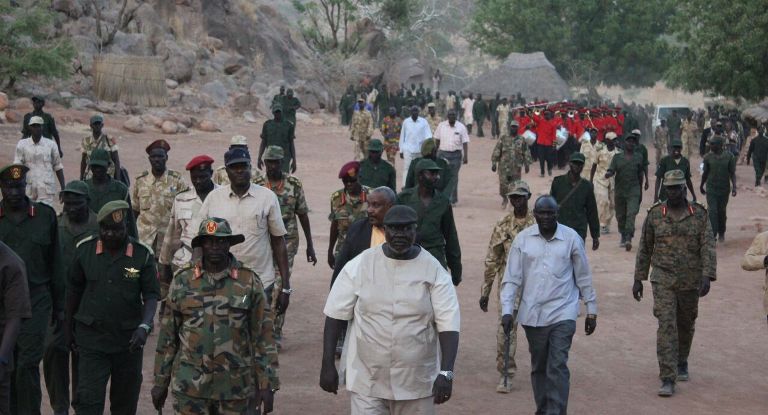Sudan criticises SPLMN-Agar refusal to engage in political talks
July 5, 2017 (KHARTOUM) – The Sudanese government has described the Sudan People’s Liberation Movement/North (SPLMN-Agar) refusal to engage in political talks as “tactical stance” and insisted on holding comprehensive negotiations.

The Movement stressed the need to launch a new political process, saying “the Roadmap has been undermined by the Sudan government by conducting unilaterally their own their own national dialogue that is neither credible nor inclusive”.
The SPLMN-Agar expressed readiness to engage in humanitarian talks.
The semi-official Sudan Media Center (SMC) on Wednesday quoted the government spokesperson Ahmed Bilal Osman as saying they would negotiate with the SPLM-N to achieve comprehensive peace not for the sake of negotiations.
He reiterated the government wouldn’t allow the delivery of humanitarian assistance from abroad, saying the door is still open for the holdout groups to join the national dialogue.
It is noteworthy that the SPLM-N demands to deliver 20% of the humanitarian assistance through a humanitarian corridor from Asosa, an Ethiopian border town.
But the government rejects the idea saying it is a breach of the state sovereignty and a manoeuvre from the rebels to bring arms and ammunition to their locked rebel-held areas in the South Kordofan and Blue Nile.
Osman described the SPLM-N decision to engage in the peace talks with two delegations and its rejection for the political negotiations as “dodgy approach” and tactical move to abort peace efforts.
As a result of a rift that started earlier this year and its successive developments, the SPLM-N is now split into two factions one led by Malik Agar and the other by his rival Abdel-Aziz Adam al-Hilu.
In its letter to Thabo Mbeki, the SPLMN-Agar pointed to the internal divisions within the Movement, proposing three options for representation in the humanitarian talks including to form one delegation depending on agreement between the Movement’s two factions, to have two delegations with one position depending on agreement, or to have two separate delegations with two separate positions as it may deem
necessary.
The government and Sudan Call signed in March and August 2016 the Roadmap Agreement brokered by the AUHIP including several steps towards their participation in a national constitutional process inside Sudan.
However, the parties failed to sign a cessation of hostilities and humanitarian agreements that are seen crucial before to move forward in the roadmap implementation process.
The government went ahead with its internal national dialogue and concluded the process last October by signing the National Document which includes the general features of a future constitution to be finalised by transitional institutions.
The opposition groups boycotted the process because the government didn’t agree on a humanitarian truce with the armed groups and due to its refusal to implement a number of confidence building measures aiming to create conducive environment in the country before to hold the inclusive dialogue.
(ST)
